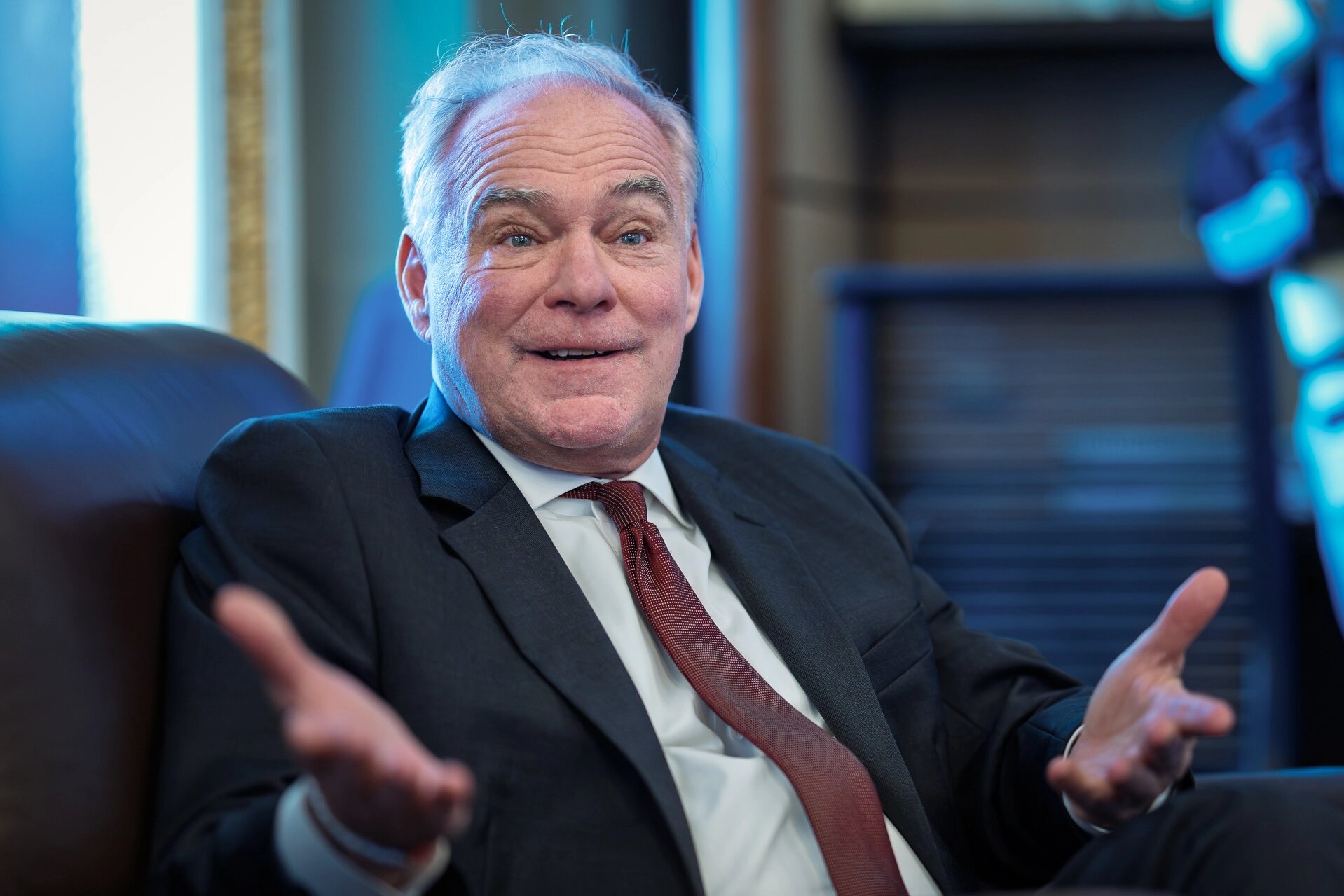Both parties are bemoaning the coming disruptions at airports. But who will blink first?

The prospect of flight cancellations disrupting travel at dozens of major airports Friday is jolting lawmakers — but not enough to get either party out of the trenches they’ve dug during the five-week government shutdown. At least not yet.
Some senators said Thursday they believe the cuts ordered by the Federal Aviation Administration may help end the stalemate. But Democrats and Republicans alike were still pointing the finger at the other party amid the standoff.
“I think it’s a factor that will certainly deepen the president’s engagement,” Sen. Tim Kaine (D-Va.) said of the looming cancellations. “When you start to see commercial aviation limited, it affects the economy in a big way, and I think that will increase the motive for” President Donald Trump to get involved in negotiations.
Senate Commerce Chair Ted Cruz (R-Texas) likewise put the onus on Democrats.
“Tens of thousands of Americans will have their flights canceled every single day due entirely to Senate Democrats … virtually all of whom have voted now 14 times to keep the government shut down, and they have taken the government and the air traffic control system hostage,” he said at a hearing Thursday.
The FAA, citing fatigue among air traffic controllers who have been working without pay, is moving to cut flight capacity at 40 busy airports starting Friday, from New York City to Los Angeles. It comes just days after a deadly cargo plane crash in Louisville, Kentucky, offered a fresh reminder of the human toll from aviation disasters, even if the details of that incident appeared unrelated to any problems with air traffic control.
On Thursday, when a reporter asked Trump if it’s safe to fly, he noted the 10 percent reductions in flights the FAA called for Wednesday. “They want to make sure it’s 100 percent safe,” he said.
At the same time, POLITICO reported Thursday that the Senate will hold a vote Friday on a stopgap measure that would extend funding — likely until January — along with a negotiated package of three annual spending bills. Senate Majority Leader John Thune believes the plan will garner enough support from Democrats to advance, but Democratic senators are seeking a sweeter deal.
If the effort capsizes, air-related woes are set to worsen across the country.
‘Immense’ effects
Illinois Sen. Tammy Duckworth, the top Democrat on the Commerce Committee’s aviation panel, said she thinks the reductions will ratchet up the pressure on Republicans to cut a deal.
“It’s gonna disrupt travel,” she said. “I have staff members who are gonna drive back to Illinois instead of fly.”
Many specifics of the FAA’s plan remained unclear Thursday, though details were trickling out — and the cuts seemed poised to hit both red and blue states alike. The list includes some of the nation’s busiest airports, including the ones in Atlanta, Los Angeles, Houston, Chicago and all three major airports in the New York City area.
A person familiar with the agency’s initiative, granted anonymity to speak candidly, said the FAA has seen routine staffing problems at the 40 airports and aims to take proactive action to address them.
Some top Republicans jumped at the opportunity to blame Democrats for the upcoming disruption. Thune said in a floor speech that the effects will be “immense” — “and all of it because Democrats cannot bring themselves to accept a clean, nonpartisan, funding resolution.”
Transportation Secretary Sean Duffy on Fox News warned Thursday that if the shutdown stretches later into the month, Thanksgiving travel could be “really rough.”
Still, some Democratic senators suggested that the political fallout wouldn’t hit them exclusively.
Sen. Sheldon Whitehouse (D-R.I.), the top Democrat on the Environment and Public Works Committee, said he believes the FAA’s move is a “pressure point for everybody involved.”
The ranking member of the Senate Homeland Security Committee’s investigations panel, Sen. Richard Blumenthal (D-Conn.), said, “I think that there will be an increasing dynamic toward trying to reopen the government.”
Trouble for regional routes?
Potential economic fallout, meanwhile, is also on the horizon, though its extent remains uncertain.
Scott Hamilton, an aviation industry analyst for consultancy Leeham Co., said he’s unaware of any economic impact estimates for airlines, but added that regional flight routes, which are distances that travelers could drive in a reasonable amount of time, are most at risk for disruption. That could impact, for example, flights by United Express, American Eagle and Delta Connection, he said.
Canceling regional flights, he said, would affect fewer passengers.
United Airlines noted Thursday that it’s avoiding nixing long-haul international flights and hub-to-hub ones operating between seven U.S. airports. The carrier confirmed to POLITICO that it’s canceling 4 percent of flights on Friday, Saturday and Sunday. That represents fewer than 200 flights Friday.
